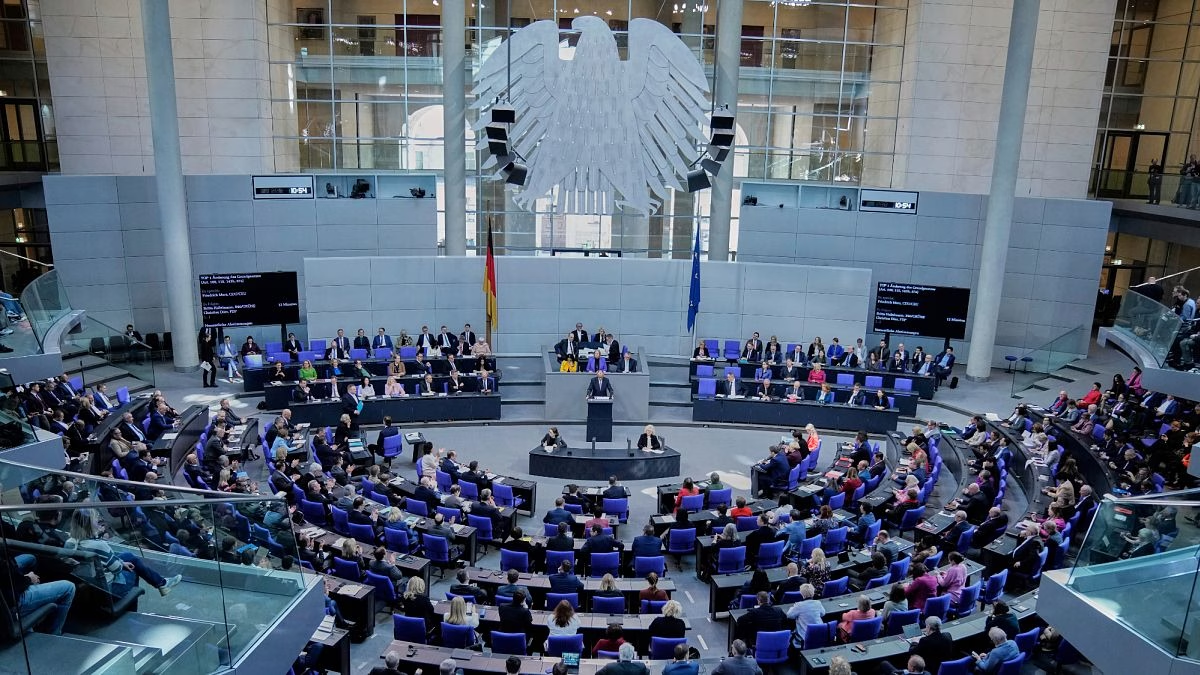Germany’s Conservative and center-left parties have reached a government formation agreement after weeks of negotiations, opening the way to a fresh leadership for the country’s largest economy following months of political stagnation.
Under the agreement, Friedrich Merz, the head of the center-right Christian Democratic Union (CDU), is expected to become Germany’s next chancellor, taking the place of Olaf Scholz.
As the Union bloc secured the majority in the February federal elections, CDU emerged as the dominant force. Merz pursued a coalition with Social Democrats, Scholz’s center-left party to secure parliamentary majority.
Under the deal, the CDU will control major ministries, such as the Foreign Ministry, Ministry for Economic Affairs, and Health Ministry. Additionally, it will head the Federal Chancellery, the agency serving the chancellor’s office.
The CDU’s sister party, CSU, will manage the Interior Ministry, the Ministry of Education, and Ministry of Food and Agriculture.
The coalition partner, SPD, will oversee seven federal ministries, including the Finance Ministry, Justice Ministry, Defense Ministry, and Ministry of Labour and Social Affairs.
Key ministerial appointments have been announced, with SPD’s Lars Klingbeil expected to lead the Finance Ministry. CSU’s Alexander Dobrindt is being considered for the Interior Minister position, while CDU’s Johann Wadephul could become the Foreign Minister. Boris Pistorius is likely to retain his post as Defence Minister.
Market instability caused by President Donald Trump’s tariff announcement added pressure for Merz’s Union and the Social Democrats to expedite the coalition talks. Stagnant growth in the export-oriented German economy over the past two years makes boosting growth a central mission for the new government.
The coalition also considers strengthening defense spending, given the emerging doubts about the US commitment to European allies. Merz recently emphasized the need for Germany and Europe to enhance their defense capabilities.
Falling poll numbers for the Union, coupled with the far-right Alternative for Germany (AfD) gaining strength, contributed to the urgency in reaching an agreement.
Despite the new coalition merging what have been Germany’s traditional powerhouse parties since World War II, the Union’s disappointing February election performance and the Social Democrats’ weakest showing since the war has left these established parties vulnerable.
Together, they hold 328 seats out of 630 in the lower house of parliament, the Bundestag.
Source: https://www.euronews.com/my-europe/2025/04/09/germanys-cdu-and-spd-reach-coalition-deal-paving-way-for-new-leadership




